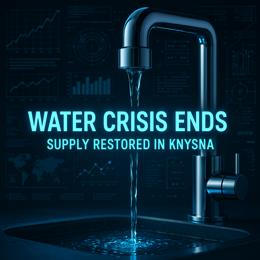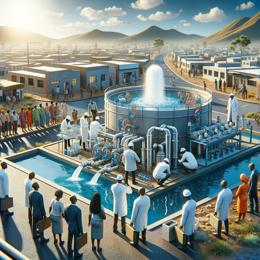Image created by AI
Crisis at the Tap: South Africa's Municipal Water Woes Deepen
The escalating water crisis in South Africa throws a harsh spotlight on the deteriorating state of local government infrastructure. Despite dams being relatively full, many South Africans face chronic water shortages – an issue that is rooted not in a shortage of water, but in a severe lapse of municipal infrastructure management.
The alarming data reveals that around 40% of South Africa's water vanishes into thin air due to leaks during distribution, a figure that surges close to 50% in Johannesburg due to its precarious water infrastructure. As water scientist Dr. Anthony Turton has pointed out, the nation has enough water to support economic growth and population expansion. The misfortune lies in acute institutional mismanagement, rather than scarcity of the resource itself.
The breakdown in infrastructure has resulted in Johannesburg being cast as "a perfect example of state failure at a local level," according to Turton. Other metros and municipalities are not spared from this debacle, as water quality and safety concerns mount in light of wastewater treatment plants' collapse. According to the Department of Water and Sanitation, a shocking 68% of wastewater treatment facilities in South Africa fall below adequate standards, predicating not just economic risks but severe public health crises, including cholera and E.coli outbreaks.
Climate specialist Professor David Walwyn has connected these public health emergencies to the crumbling capabilities at the local authority level, a predicament that extends to other public goods such as roads, electricity, and security. The consequential cost has been a forced shift for businesses and households away from reliance on centralised water supplies. Though investment and mitigation strategies are underway, with entities like Coronation involving themselves in dialogues about water reliance, the broad consensus is that independence from central distribution is untenable for large industries due to prohibitive costs.
This instability has led to a substantial decrease in South African residents engaging with government services, Stats SA reveals, attributing this trend to access barriers, distrust, and corruption. PwC's analysis of this situation reflects a steady reduction in the quality of public services, quoting a systemic erosion of the state's capacity due to corruption and incompetence. This decline isn't restricted to any one sector but spurns across the board, signaling a national call for accountability and dramatic restructuring of municipal governance and infrastructure management.










